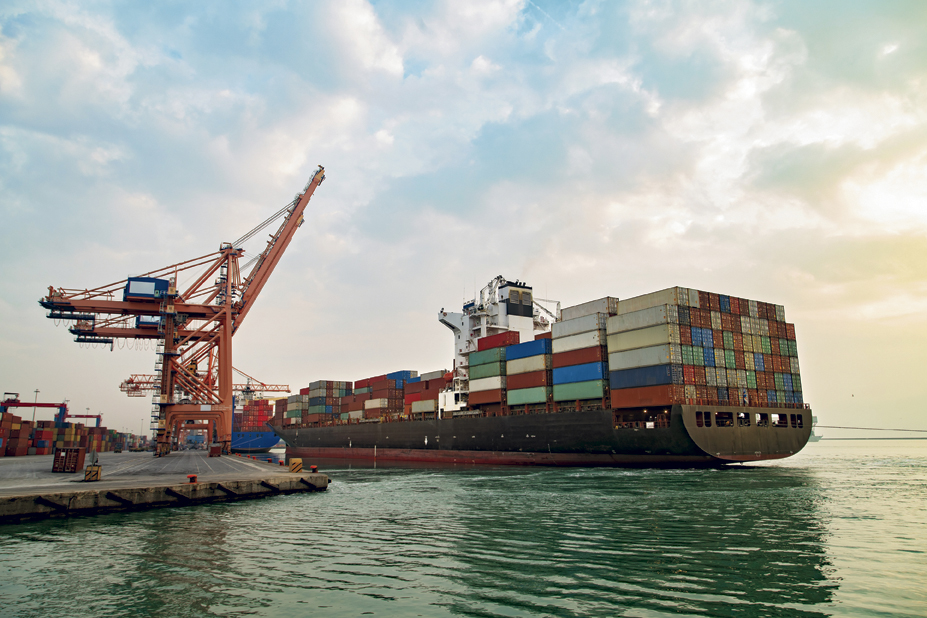FOCUS ON THE CARGO INSURANCE MARKET
Rising claims and shrinking capacity cause market firming
By Lori Widmer
The soft market, at least by some accounts, is over.
According to the Willis Towers Watson Insurance Marketplace Realities 2020report, the entire industry is experiencing price increases, “many sizable, for more lines of insurance than we’ve experienced in recent memory.”
With more businesses paying more for coverage, the shift in the industry’s fortunes is significant. For the specialty lines market, one area that’s experiencing plenty of shifting sands is cargo insurance.
According to the Willis Towers Watson report, shrinking capacity combined with an increase in the frequency and severity of cargo claims has caused both U.S. and London markets to firm.
The report states that broad coverage terms are still available. Nonetheless, the increased claim activity has spurred insurers to revisit underwriting strategies and guidelines and rethink their risk appetites as claims are affecting profitability.

—Andrew D’Alessio
Head of Ocean Cargo, Americas
AXA XL
A market disrupted
“The cargo market is in a state of distress and correction,” says Andrew D’Alessio, head of AXA XL’s Ocean Cargo for the Americas. “The London market started correcting in early 2019, and there was a lag effect in the United States, where the impact only started to be felt in a material way in Q3 of 2019. This has caused capacity pullback or markets to withdraw from certain marine lines of business, including cargo.”
That’s also causing a good deal of distress for some buyers who are looking for coverage. Certain commodities or cargo types, D’Alessio says, are becoming “extremely difficult” to cover.
For carriers, it’s welcome relief. “This has allowed carriers to restructure programs and generally increase rates, which has been much needed, as rates have fallen for the past decade or longer,” D’Alessio notes.
“The cargo and stock throughput markets are experiencing a strengthening as a result of prolonged narrow, and in some cases negative, profit margins, both domestically and internationally,” says Paul Boulos, senior managing director of The Hartford’s ocean marine business.
Boulos says e-commerce and online retail sales are putting freight logistics products in the spotlight, which is helping to feed the current firming of the market. “Additionally, across all carrier and broker profiles, we have seen a continued and greater desire to simplify and expedite the underwriting process via ‘platforms,’ carrier lead slips, and online quoting tools,” he says.
The result: Capacity has declined, and carriers are increasing their efforts to improve profits. That’s created another shift—how competition behaves—says Boulos. “Carriers are increasingly interested in minimizing catastrophic exposures both to natural catastrophes and traditional loss, creating a more risk sharing-friendly environment. Through the second half of 2019, brokers adjusted their marketing strategies appropriately and targeted a more general placement approach, as opposed to targeting specific carriers as readily.”
Claims on the rise
That new approach is largely a response to an active claims environment. The larger claims in 2019, says D’Alessio, were attributed to vessel fires caused primarily by misdeclared cargo in containers.
He says that currently, a “very low” percentage of cargo containers is inspected; the active response is that many shipping lines are increasing container inspections. “The results have showed that a very high percent-age of the goods declared on shipping documents are different in some way.”
Why that matters: Surveys of containerized cargo are not required or regulated, D’Alessio says. “This often poses a risk of fire hazard if there are misdeclared dangerous goods or those sensitive to heat, as the container’s position on a ship can significantly affect the temperature in the container so that combustion is unfortunately enhanced.”
Although the more common cargo claims are the “rough handling, theft, wetting type of claims, the expected exposures when underwriting the class,” according to Boulos, both Boulos and D’Alessio say that fire loss in warehouse or storage facilities is driving a large portion of claims. “Often the cause of loss is human error or hot work/maintenance related, or deficient/nonexistent sprinklers or firefighting systems,” says D’Alessio.
Claims, he says, become unwieldy for cargo owners, brokers, and agents to handle because of who is in control of the cargo. “The cargo is more often in the care, custody, or control of third-party transporters or warehouses, whereby the party with the most interest in the goods has little control,” says D’Alessio. “The third parties have low liability, and increasing their responsibility on a contractual basis is an action that is positive but can have a high related cost.”

—Paul Boulos
Senior Managing Director, Ocean Marine
The Hartford
Cyber risk
Another exposure that could become a large claim driver is cybersecurity. Boulos says cyber has been extensively discussed, but to date no large cargo losses have been attributed to a cyber-attack or related incident.
But the industry agrees that cyber isa growing concern. D’Alessio says a systemic loss caused by a cyber event could affect “an entire ship or terminal, causing a loss that has not been priced in.”
D’Alessio says carriers are now taking a hard look at the cyber exposure and ramping up their efforts to mitigate it. “Cargo insurers turned a blind eye and generally did not address it in the policy wording, but this has been a key January 1, 2020, discussion point, given that a major event has been estimated to cost in the billions in insurable impact.” (Think about all cargo in a massive terminal being lost or rerouted.)
“Carriers are responding with affirmative cyber coverage in policies from January 1, 2020,” D’Alessio says. “This means the policy either explicitly excludes coverage or provides limited coverage in some fashion.”
It’s a proactive stance that other markets also are using. “Lloyd’s of London has taken the step of requiring carriers to include appropriate cyber exclusions on all their ocean cargo placements, which the U.S. carriers are happy to embrace as well but lack the formal association to mandate,” says Boulos. “The generally accepted point of view on cyber is that the physical loss or damage resulting from an attack or accident would be covered under the all-risk cargo policy that is silent on cyber. The exclusions we are seeing aim to limit loss as a result of malicious acts.”
Responding to customer needs
D’Alessio says profitability challenges for U.S. carriers and in the London market will continue to drive market constriction and may result in carriers continuing to exit the marine/cargo space or reduce their appetites. “As the soft market eroded premiums for so long and did not keep up with inflation, or generally broader coverage increased losses, insurers’ break even points have been reached and exceeded,” he says.
“A hard market happened very quickly in the United States, and it is affecting brokers and risk managers in a material way, as they have not budgeted for large increases,” D’Alessio adds. “The market has been enhancing coverage and allowing rate decreases for many, many years. Both small and large multinational insurers have been affected.”
That’s going to put agents and brokers in a tough spot when trying to place business. With fewer options available and pricing on the rise, the experts say agents and brokers should be helping their customers reduce exposures. “Agents and brokers who engage in loss prevention in the best interests of their clients will have the greatest long-term impact on carrier profitability and ultimately premium reduction,” says Boulos.
Such a shift in attention could be the differentiator for agents and brokers who are looking to bring value and right-sized coverage to their insureds, says Boulos. “The benefits of carrier relationships, contract review, program structure expertise, identification of needed additional coverage, and multinational arrangements all contribute to appropriate insurance placements and risk management.”
For more information:
AXA XL
www.axaxl.com
The Hartford
www.thehartford.com
The author
Lori Widmer is a Philadelphia-based writer and editor who specializes in insurance and risk management.





